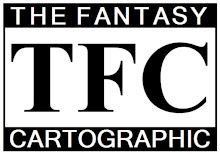Just as French (and many other languages) characterize nouns as either masculine or feminine, High Elvish makes use of a few characterizations (hereafter referred to as ‘labels’) for its nouns. Elvish does not rely upon gender as a label. Instead, Elvish labels are the verbal signpost of how they view a given object within nature (1) or better stated, they describe the nature (2) of the item.
[Clarification may be in order:
(1) the natural world as it exists without sentient beings or civilization
(2) the particular combination of qualities belonging to something]
There are six primary natures in Elvish thinking, and hence six primary labels used in the construction of Elvish words. They are:
- Living (Alive)
- Dead (Was Once Alive)
- Inanimate (Was Never Alive)
- Natural (Of the natural world)
- Magical (Arcane)
- Spiritual (Alive, but not of the ‘seen’ world)
The standard default natures of nouns used by the Elves are ‘Natural’ and ‘Living’. If one comes across a noun in Elvish that possesses no labels, it can be assumed that that object is natural and living.
The labels may appear as prefixes or suffixes in the language, depending on various rules of grammar to be discussed at a later time. Also, a word may possess two or more labels. The order of the labels in a given word will affect its meaning. It is worth noting that there are cases when a literal reading of a noun and its associated labels will not translate perfectly into Common or even maintain the literal, by-the-rules definition in Elvish. While this presents difficulties for those attempting to learn Elvish, the elves themselves understand that and accept that their language is not dogmatically 'correct'.
Subscribe to:
Post Comments (Atom)








No comments:
Post a Comment